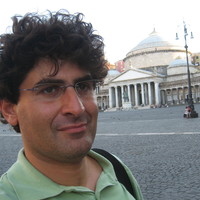Διαδικτυακή Διάλεξη
Porphyry on Soul
12 Οκτωβρίου, 2023
Η διάλεξη θα πραγματοποιηθεί μέσω Zoom
7-9μ.μ. (ώρα Αθήνας)
Image: Hiram Powers (1805-1873), Psyche, 1848, Plaster, 63.8 x 43.6 x 24.7 cm. Smithsonian American Art Museum Collection, Object number 1968.155.86
Abstract
Like Plotinus and most ancient Platonists, Porphyry was particularly concerned with the nature of the soul in general, and with the nature of the human soul and its operation, in particular. Quite importantly, Porphyry distinguishes between the soul in itself and the soul in relation, i.e. in relation to the body (κατὰ σχέσιν; Porphyry, On the Faculties of the Soul, fr. 253.114-117 Smith). The soul in relationship is the embodied soul, while the soul in itself is presumably the intellect that does enter the body but does not engage with the body, although it is not entirely clear whether this soul should be identified with the intellect. What is clear, though, is that the soul in itself is the real human soul, which enters the human body only later in life. This is what Porphyry argues in his Ad Gaurum. The soul in relation, the embodied soul, is the empsychia, which is poured into the body (εἴσκρισις; Ad Gaurum 33.1). In my paper I will consider the relevant evidence which includes Porphyry’s polemical treatise Against Boethus which survives in fragments, the also fragmentary On the Faculties of the Soul and the Ad Gaurum, and I will attempt to reconstruct Porphyry’s theory of the soul, which, I will argue, differs in some respects from Plotinus’ mature theory of the soul.

George Karamanolis (DPhil Oxon 2001)
George Karamanolis is an Associate Professor in the Department of Philosophy at the University of Vienna. His main areas of research are Later Ancient Philosophy and Hellenistic Philosophy, while he also maintaining research interests in Byzantine and Renaissance Philosophy. He is the author of: Philodemus, The Epigrams: The Poetry of an Epicurean (2004), Plato and Aristotle in Agreement? Platonists on Aristotle from Antiochus to Porphyry (Oxford University Press, 2006 ; revised pbk edition 2013), The Philosophy of Early Christianity (Routledge 2013; 2nd edition 2021) and co-editor of Studies on Porphyry (with A. Sheppard), The Aporetic Tradition in Ancient Philosophy (with V. Politis), and Pseudo-Aristotle, De Mundo (with P. Gregoric). He has also recently published a Modern Greek translation with commentary of Cicero’s De finibus (with E. Mitousi).
